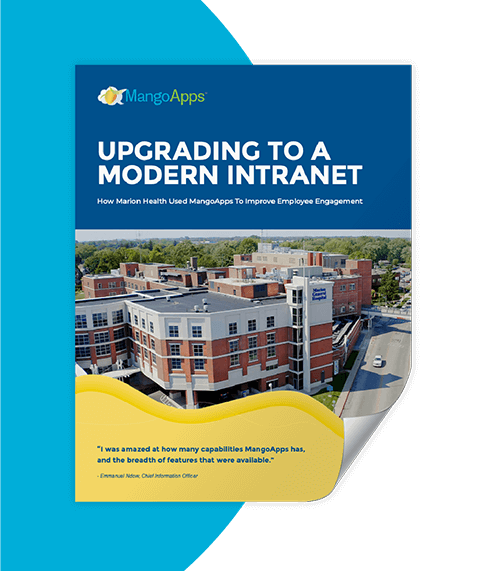Burnout among healthcare professionals is an alarming and pervasive issue. It can significantly impact the well-being of staff and the quality of patient care. Burnout is characterized by emotional exhaustion, depersonalization, and a diminished sense of personal accomplishment. In this era of technological advancements, leveraging software solutions is becoming a pivotal strategy in reducing burnout within healthcare.
Definition of Burnout in Healthcare
Burnout is not a new concept, but it has gained increased attention in recent years due to its prevalence. The World Health Organization (WHO) defines burnout as “a syndrome conceptualized as resulting from chronic workplace stress that has not been successfully managed” (source). In the healthcare context, burnout is typically seen among physicians, nurses, and other bedside clinicians. Without efforts to root it out, burnout can have long-term negative effects on their mental and physical health.
Additionally, the Maslach Burnout Inventory, a widely used tool for assessing burnout, defines it as a psychological syndrome characterized by emotional exhaustion, depersonalization, and reduced personal accomplishment. Emotional exhaustion is described as feeling emotionally drained and overwhelmed with work-related stress. Depersonalization, also known as cynicism, is a sense of detachment and negativity towards one’s job and patients. Reduced personal accomplishment is feeling a lack of competence and achievement in one’s work.
In healthcare, the stakes are high. Burnout not only affects the individual but also has cascading effects on patient safety, care quality, and health system performance.
Impact of Burnout on Healthcare Professionals and Patients
Burnout in healthcare professionals is far from a singular issue; it is a multi-faceted problem with profound consequences. Healthcare providers experiencing burnout often grapple with reduced productivity, increased medical errors, and higher rates of job turnover. This, in turn, manifests in the deteriorating quality of patient care and a decline in patient satisfaction—two key performance indices for healthcare management.
Moreover, the repercussions of burnout ripple out to affect the larger health system. Increased turnover rates lead to staffing challenges, which further exacerbate the heavy workload on the remaining staff. This vicious cycle fuels further burnout, creating a systemic issue that is challenging to address. In addition, the financial repercussions of burnout cannot be overlooked. When factoring in costs associated with replacing staff and managing reduced productivity, burnout leads to significant financial losses for health systems.
On the patient side, burnout’s impact is equally damaging. Patients receiving care from exhausted or disengaged clinicians may face a higher risk of receiving suboptimal care. This can translate to increased probability of medical errors, lower adherence to treatment, and reduced trust in the healthcare system. Furthermore, the impersonal and rushed interactions often associated with burnout can detrimentally affect patients’ healthcare experiences, leading to lower satisfaction scores and potential damage to the facility’s reputation.
Thus, the burnout issue amongst healthcare professionals is not just a personal crisis, but a wider healthcare system failure. It underscores the vital importance of addressing this issue strategically and systematically, not just for the sake of individual healthcare providers, but to safeguard the quality of patient care and the integrity of our healthcare systems. This is where the potential of technology becomes an instrumental ally in our quest towards reducing burnout in healthcare.

Enabling clinical staff at Marion Health
Learn how Marion Health improved communication and collaboration among staff and clinicians with a secure employee app.
The Role of Technology in Addressing Burnout
The use of technology in healthcare has drastically increased in recent years, with advancements in electronic health records (EHRs), telemedicine, and remote monitoring systems. While these technologies have improved patient outcomes, their potential for reducing burnout has not been fully harnessed.
One key aspect where technology can make a significant impact is in streamlining administrative tasks. A study by the American Medical Association found that physicians spend an average of 6.9 hours per week on administrative work, leading to increased stress and burnout. Implementing digital solutions such as voice recognition software and automated appointment scheduling can significantly reduce this burden. This frees up time for healthcare professionals to focus on patient care.
Moreover, technology can also play a crucial role in improving communication and collaboration within healthcare teams. Tools such as HIPAA-compliant intranets, secure messaging platforms and virtual care coordination platforms can enhance communication between providers, reducing the need for time-consuming phone calls and emails. This not only improves efficiency but also fosters a sense of camaraderie amongst team members. Better community can help combat feelings of isolation and burnout.
Another area where technology can have a significant impact is in the realm of self-care and well-being for healthcare professionals. Many health systems have implemented employee wellness programs, which often include access to fitness classes, mental health resources, and stress management techniques. Technology can enhance these programs by providing personalized recommendations and tracking progress through wearable devices or online platforms, as well as proactively unearthing the signs of physician burnout.
Finally, the use of data analytics can help identify patterns and trends in burnout amongst healthcare professionals. This allows for targeted interventions and support. By tracking employee engagement, workload, and other key metrics, health systems can proactively address burnout before it reaches critical levels.
Understanding the Causes of Burnout in Healthcare
A comprehensive approach to reducing burnout necessitates an understanding of its root causes within healthcare settings. Some of the primary contributors include:
High Workload and Staff Shortages
The healthcare industry is known for its demanding workloads, with long hours and high patient caseloads. This can be especially taxing for physicians, nurses, and other frontline staff who are constantly dealing with the physical and emotional demands of their job. Combined with staff shortages in many healthcare settings, this creates a pressure-cooker environment that can quickly lead to burnout.
One factor contributing to staff shortages is the increasing demand for healthcare services. As the population grows and ages, the demand for healthcare services continues to rise, putting additional strain on an already stretched workforce. Additionally, there is a shortage of physicians and nurses entering the field. Factors such as retirement, burnout, or dissatisfaction with their jobs contribute to this decline. This is why it is so important to proactively track and minimize key metrics like nurse turnover.
Emotional and Physical Stress
Emotional and physical stress is a significant contributor to burnout amongst healthcare professionals. The nature of their work, dealing with illness, trauma, and even death on a daily basis, can take a toll on one’s mental and emotional well-being. In addition, the constant physical demands of the job, such as long shifts and physically demanding tasks, can lead to exhaustion and fatigue.
Moreover, healthcare professionals often have to manage the emotional needs of their patients while also dealing with their own emotions. This constant balancing act can be emotionally draining and contribute to burnout.
Administrative Burdens
Healthcare professionals are often burdened with a significant amount of administrative tasks that take time away from direct patient care. These tasks include data entry into electronic health records (EHRs), compliance with regulatory requirements, managing insurance claims, and coordinating with other healthcare providers. Each of these responsibilities adds to the workload of healthcare professionals and can contribute to feelings of burnout.
EHRs, although designed to improve patient care and streamline processes, have significantly contributed to the administrative burden. Physicians often find themselves spending more time entering data into the system than interacting with their patients. This shift in focus from patient care to administrative tasks can lead to frustration and dissatisfaction, further fueling burnout.
Regulatory requirements, while necessary for ensuring quality and safety, often require a plethora of documentation and reporting. Keeping up with ever-changing regulations can be stressful and time-consuming, contributing to the sense of being overwhelmed and burned-out.
Managing insurance claims is another drain on healthcare professionals’ time. The complex and often convoluted process of submitting claims and dealing with insurance companies can add to the stress and frustration experienced by healthcare providers.
Lastly, the need for coordination with other healthcare providers can be an additional source of administrative burden. With healthcare moving towards a more integrated and collaborative approach, there is an increased need for coordination and communication between different providers. While this is beneficial for patient care, it adds another layer of complexity and time commitment, further contributing to the risk of burnout.
In light of these challenges, it becomes evident that substantial efforts are needed to reduce the administrative burden on healthcare professionals. Streamlining processes, improving EHR usability, simplifying regulatory requirements, and enhancing coordination between providers can all contribute to a reduction in administrative tasks in healthcare and subsequently, reducing burnout.
Lack of Work-Life Balance
Achieving a suitable work-life balance is a constant struggle within the healthcare profession, and a significant contributing factor to burnout. This balance becomes particularly challenging to maintain when professionals are constantly on call or work irregular hours, leading to disrupted personal life and limited recreational time. The intensity of work coupled with insufficient rest can lead to physical exhaustion, one of the key indicators of burnout.
Healthcare professionals often find themselves caught in a cycle of long work hours followed by periods of recovery, leaving little time for leisure activities or personal commitments. The relentless pace of this cycle establishes an unhealthy rhythm, leaving professionals feeling like they are always catching up and never quite achieving a state of equilibrium.
Improving work-life balance in healthcare settings requires a multifaceted approach. It involves changes at the individual level, such as setting boundaries and prioritizing self-care, as well as changes at the organizational level, such as implementing policies for flexible work hours, providing support services, or fostering a culture that values work-life balance. By addressing this crucial aspect, the healthcare sector can mitigate one of the key contributors to burnout, improving both the well-being of its professionals and the quality of care provided to patients.

Boosting engagement at Columbia Basin Health Association
Learn how CBHA got over 90% user adoption and improved staff alignment with MangoApps
Technology’s Role In Reducing Healthcare Burnout
Leveraging MangoApps to Alleviate Healthcare Burnout
In the face of these daunting challenges, MangoApps emerges as a quintessential tool to alleviate healthcare burnout. By offering an intuitive, multifaceted employee app, we help healthcare organizations streamline their processes, improve collaboration, simplify their tech stack, and much more.
Workflow Automation
MangoApps offers powerful workflow automation capabilities that can significantly reduce the administrative burden healthcare professionals face. By automating repetitive tasks, healthcare professionals can focus more on patient care and less on administrative duties. Workflow automation also minimizes the risk of errors in data entry and compliance reporting, further reducing stress and burnout.
Improved Collaboration
MangoApps helps foster a culture of interdisciplinary collaboration among patient-facing employees. Through its seamless communication features, it enables healthcare professionals to coordinate effectively, share information promptly, and work collaboratively. This enhanced communication can minimize misunderstandings and errors, leading to a more efficient and less stressful work environment.
Access to Training and Resources
With MangoApps, healthcare professionals have access to a wealth of training resources and educational materials at their fingertips. The platform’s robust learning management system allows professionals to continually cultivate their skills and knowledge, leading to improved job satisfaction and a decreased likelihood of burnout.
Employee Recognition
MangoApps provides an excellent platform for employee recognition programs in healthcare. Recognizing the hard work and dedication of healthcare professionals can boost morale, increase job satisfaction, and reduce burnout. With features such as peer recognition and rewards, MangoApps ensures that employees feel valued and appreciated.
Employee Listening
MangoApps promotes a culture of open communication and feedback through its employee listening features. By conducting surveys and inviting ideas, organizations can gain a deeper understanding of their employees’ experiences, identify potential issues early on, and implement changes to reduce burnout.
Simplification of Your Tech Stack
By converging multiple functionalities into a single platform, MangoApps simplifies the tech stack for healthcare organizations. This consolidation results in fewer platforms to learn and manage, leading to less tech-related stress and a more streamlined workflow.
Conclusion
By leveraging these tools and features, healthcare organizations can start reducing burnout among their professionals and create a healthier, more sustainable work environment.
For more reading material, see our healthcare employee engagement ideas or the benefits of digital transformation.







